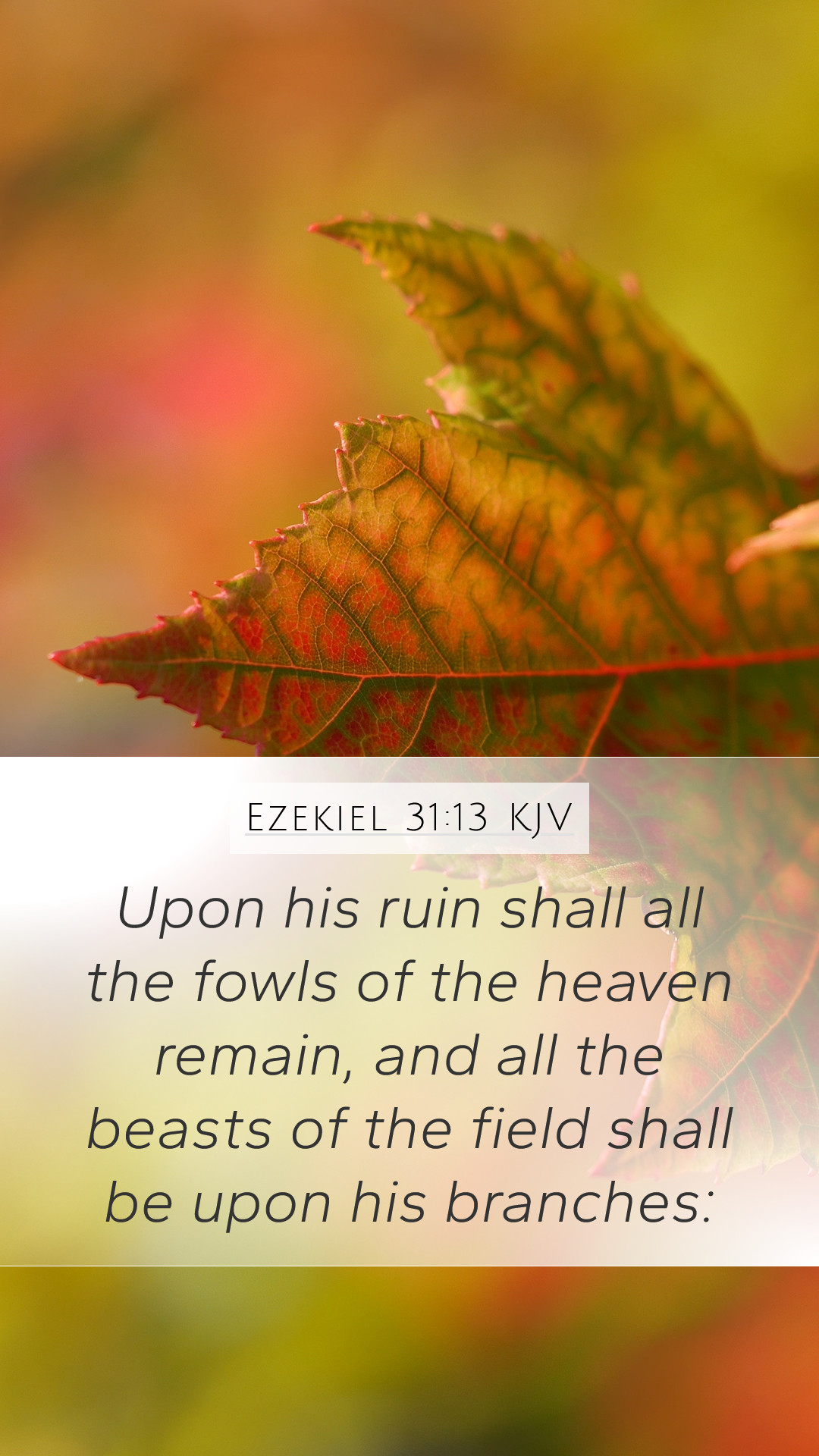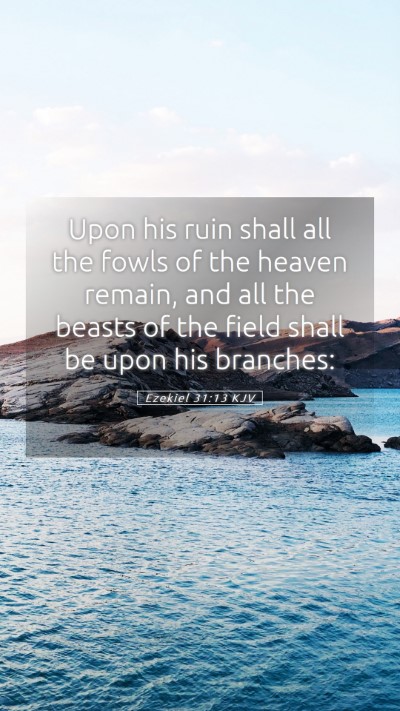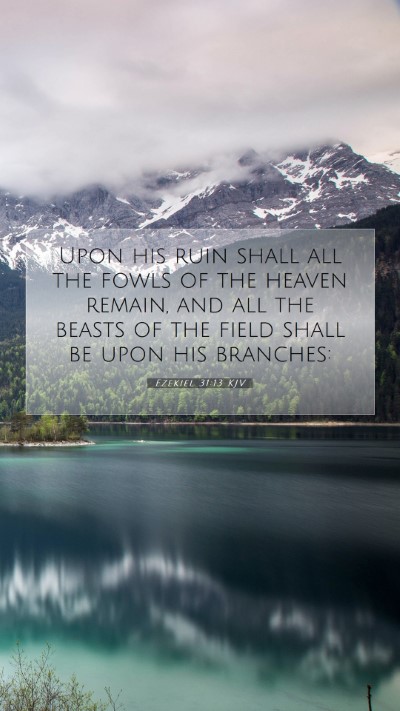Bible Verse Commentary: Ezekiel 31:13
The verse Ezekiel 31:13 encapsulates a profound warning and reflection on the fate of those who find strength and pride in their stature, likening them to the once-great Assyrian empire, which ultimately faced destruction due to its arrogance and downfall.
Summary and Context
Ezekiel, a prophet, spoke during the Babylonian exile, conveying God's messages about judgment, restoration, and hope. In chapter 31, he uses vivid imagery, particularly of a majestic cedar tree representing Assyria, to depict its pride and subsequent fall.
Meaning of Ezekiel 31:13
This verse states, “Upon his ruin shall all the fowls of the heaven remain, and all the beasts of the field shall be upon his branches.” The imagery here symbolizes how fallen empires become a refuge for all creatures, denoting how once-thriving arrogant powers eventually decline, leaving them vulnerable and powerless.
Insights from Public Domain Commentaries
- Matthew Henry: In his commentary, Henry emphasizes the moral of humility before God. He interprets the "fowls" and "beasts" as symbols of lesser powers that thrive on the remnants of those who had fallen. This illustrates that human pride leads to downfall.
- Albert Barnes: Barnes focuses on the broader context of Ezekiel's message regarding the fate of nations. He explains that just as the great cedar symbolizing Assyria was cut down, so too will all empires that defy God with pride meet their end. It reinforces the sovereignty of God over earthly powers.
- Adam Clarke: Clarke provides insight into the prophetic significance of this verse. He connects the imagery to the collective judgment of nations that overlook the divine authority. Clarke points out that the remnants left after destruction serve as a reminder of vulnerabilities and past glory.
Key Takeaways
- The verse serves as a reminder of the temporary nature of human pride and power.
- It highlights God's sovereignty and the inevitability of judgment against arrogance.
- Assyria's great stature eventually led to its ruin, similar to other nations and individuals who ignore God’s authority.
- There is a clear depiction of vulnerability post-dominance, with creatures representing the lower forces that thrive on the fall of the proud.
Application of Ezekiel 31:13
For believers today, this verse serves as an important caution against pride and self-reliance. Understanding the scriptural warning can aid in personal reflection and humility, underpinning the Christian faith's tenets of reliance on God's strength rather than human power. In Bible study groups, discussions surrounding Ezekiel 31:13 can provide rich insights into collective understanding and the significance of humility before God.
Related Bible Cross References
- Isaiah 14:11 - Discusses the fall of Babylon and the end of its pride.
- Jeremiah 51:58 - Speaks about the coming destruction of Babylon, drawing parallels to the imagery in Ezekiel.
- Proverbs 16:18 - "Pride goes before destruction, a haughty spirit before a fall," underscoring the moral lesson conveyed in Ezekiel.
Conclusion
The explanation of Ezekiel 31:13 through this biblical commentary highlights the essential lessons of humility, the fleeting nature of human strength, and the ultimate authority of God over all nations and powers. Understanding Scripture in this context encourages deeper reflection in Bible study lessons and discussions.


